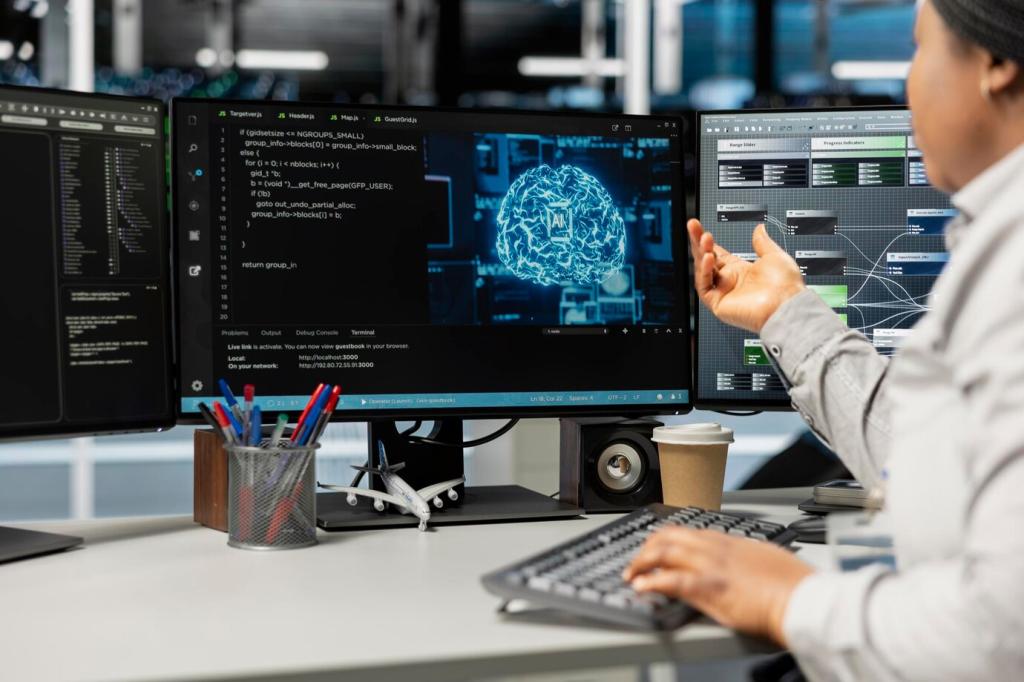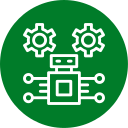Efficient Energy Management with Smart Home Automation
Discover how integrating advanced smart home automation technologies enables you to achieve efficient energy management in your living space. From smart thermostats and lighting to seamless device control and data analytics, modern automation offers both convenience and substantial energy savings. Learn how these solutions enhance comfort, reduce environmental impact, and empower you to take control of your home’s energy future.

The Foundation of Smart Home Automation

Connected Devices and Sensors
Connected devices and sensors form the backbone of smart home automation. They continuously monitor environmental conditions such as temperature, lighting, and motion. These devices send feedback to the central automation hub, allowing for intelligent responses, whether adjusting settings or sending notifications about unusual activity. Their integration ensures that your home adapts to your routine, minimizing unnecessary energy expenditure.

Centralized Control Platforms
Centralized control platforms tie together all smart devices within your home. With intuitive interfaces accessible via smartphones, tablets, or dedicated control panels, managing your household energy becomes effortless. These platforms provide the foundation for automating schedules, receiving alerts, and fine-tuning various settings. The ability to oversee and adjust everything from a single location contributes significantly to efficient energy usage.

Automation for Everyday Tasks
Automating everyday home operations can greatly improve energy management. With smart home automation, routine tasks such as adjusting lighting, regulating thermostat settings, and powering appliances on or off are handled automatically. This consistent routine ensures that energy resources are used only when needed, optimizing consumption without compromising comfort or convenience.
Smart Thermostats for Climate Control
Learning Your Preferences
Modern smart thermostats analyze your daily activities and temperature preferences. Over time, they automatically create customized schedules that match your routine, optimizing the climate in your home at those times you need it most. By avoiding unnecessary heating or cooling when you’re away, these devices reduce overall energy usage while maintaining peak comfort.
Remote Temperature Management
Remote management capabilities offered by smart thermostats mean you can adjust your home’s climate from anywhere. Whether you’re headed home early or staying out late, simply modify temperature settings remotely. This prevents wasted energy and guarantees a comfortable environment on arrival without having the HVAC system running longer than necessary.
Energy Reporting and Insights
Energy reporting features provide detailed insights into your consumption patterns. Accessing these analytics helps you understand where you might be unintentionally wasting energy. By identifying trends and inefficiencies, you can make informed decisions and adjustments, leading to long-term savings and a more sustainable household.
Occupancy-Based Automation
Smart lighting systems leverage occupancy sensors to determine when rooms are in use. Lights are automatically turned on when you enter a room and off when you leave, eliminating wasted electricity. This kind of automation adapts dynamically to your movements, streamlining energy consumption throughout the home seamlessly.
Daylight Integration
Through daylight harvesting and integration with ambient light sensors, smart lighting systems can adjust artificial illumination based on natural light availability. As more daylight enters a room, artificial lights dim automatically, ensuring optimal brightness while minimizing energy use. This synchronization boosts efficiency and enhances the aesthetic of your living space.
Personalized Lighting Scenes
The ability to create and recall personalized lighting scenes enhances both comfort and energy management. Automating settings for daily routines, such as waking up, movie time, or bedtime, ensures lights operate precisely when needed and at suitable intensities. This customization maximizes enjoyment and consistently curtails unnecessary energy expenditure.
Real-Time Usage Monitoring
Intelligent appliance control systems allow for detailed tracking of each device’s energy use in real time. By monitoring consumption, homeowners gain awareness of which appliances draw the most power and when. This transparency uncovers opportunities for behavioral shifts or upgrades to higher-efficiency models, further optimizing household energy usage.
Automated Scheduling Features
Scheduling appliances to operate during off-peak hours or at times of lowest demand can produce substantial energy savings. Automation systems let users configure wash cycles, dishwashing, or even water heating to run at the most efficient times. This not only yields lower energy bills but can also help prevent overloading your home’s electrical capacity.
Remote Appliance Management
Remote management enables you to control connected appliances from anywhere. Whether you forgot to turn off the oven or need to start the washing machine before returning home, smart automation grants that capability. This flexibility reduces anxiety, enhances safety, and eliminates unnecessary runtime, all of which contribute to a more energy-conscious household.

Previous slide
Next slide
Data Analytics and Reporting Tools
Automation platforms collect comprehensive data on how and when energy is used within your home. With detailed reports, you can identify high-consumption areas and spot improvement opportunities. This data-driven insight supports strategies to tackle waste and prioritize energy-efficient upgrades effectively.

By minimizing unnecessary energy consumption, smart home automation contributes to a meaningful reduction in greenhouse gas emissions. Efficiently managed systems require less electricity generation, directly impacting your household’s contribution to climate change. This shift positions your home as part of the solution to environmental challenges.

Effective energy management through automation extends beyond electricity. Smart systems often optimize water heating, cooling efficiency, and even irrigation, collectively lowering the consumption of valuable resources. These conservation efforts promote responsible usage and preserve essential resources for future generations.

Choosing smart home automation for energy management sends a powerful message about your values. By adopting innovative technologies, you help drive demand for cleaner energy solutions, influence broader adoption, and encourage the development of even more sustainable tech—all vital contributions toward a cleaner, greener future.
